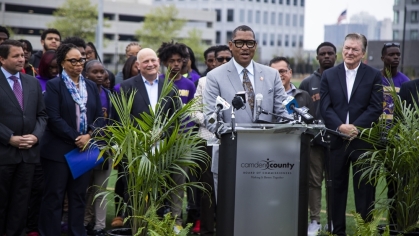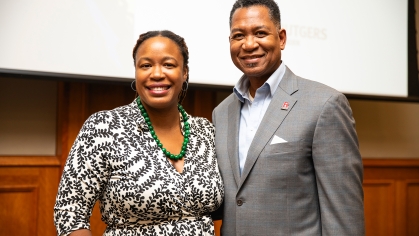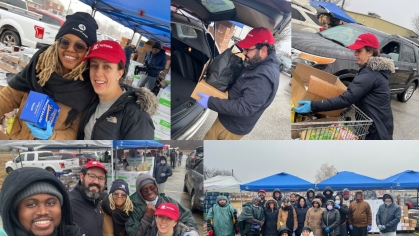Camden Barbers Become Messengers of COVID-19 Vaccine Importance, Thanks to Innovative Collaboration
Barbershop owners in Camden – like in many U.S. cities – are known as key influencers in the city, their shops being hubs of community conversation and information.
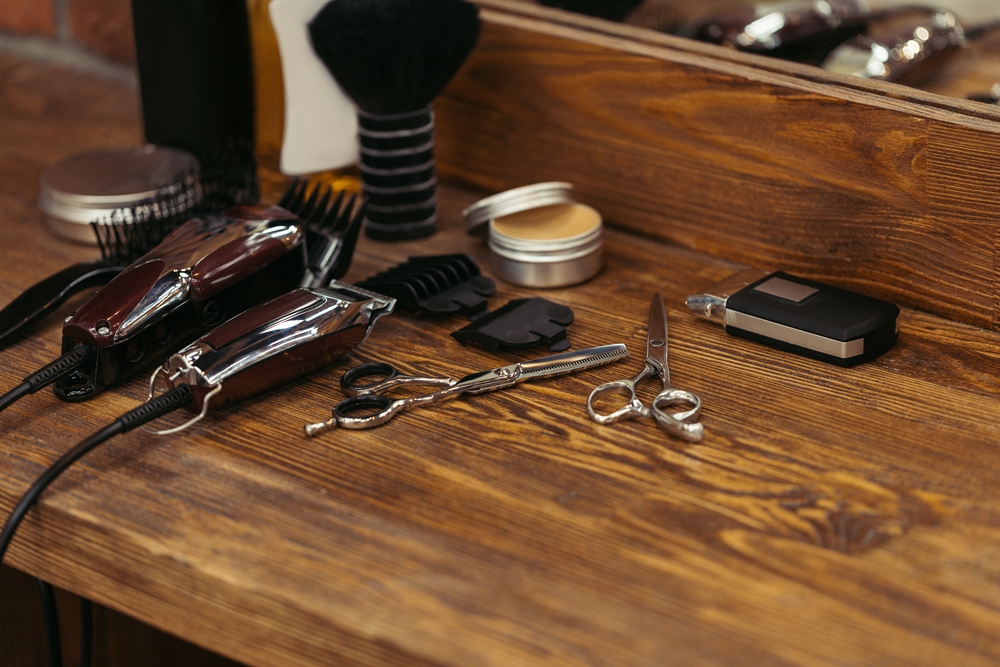
“To get out of this pandemic and return to fully functioning life, we have to think creatively about how to vaccinate our hard-to-reach and vulnerable residents.” – Bob Atkins, NJHI’s director and an associate professor of nursing at Rutgers–Camden
True to form, a group of Camden barbers have now taken on the role of community ambassadors for the safety and importance of the COVID-19 vaccine, thanks to an innovative new awareness campaign led by Rutgers University–Camden and the Center For Family Services in Camden.
Sponsored by New Jersey Health Initiatives (NJHI), a statewide grantmaking program of the Robert Wood Johnson Foundation, the Community Connectors campaign leverages the trust and relationships of a team of Camden residents – or community connectors – to recruit up to 15 local barbers, who in turn espouse the merits and accessibility of getting vaccinated.
“To get out of this pandemic and return to fully functioning life, we have to think creatively about how to vaccinate our hard-to-reach and vulnerable residents,” says Bob Atkins, NJHI’s director and an associate professor of nursing at Rutgers–Camden. “Through our research and experience, we know there is a lack of confidence in the COVID-19 vaccine in communities of color that just needs to be built up – and one way to do that is for people to trust the messengers with whom they work and live and interact daily to communicate its importance, safety, and effectiveness.”
Rutgers–Camden psychology researchers Kristin August and Charlotte Markey first worked with their students to develop evidence-based messaging and materials for the campaign. The students worked together to come up with the messaging, including a positive slogan: “Stay Camden strong. Don’t wait. Vaccinate.” They then helped to translate the information into Spanish and create flyers. “As researchers, we often don’t see the fruits of our labor turn into something useful and worthwhile,” says August, an associate professor of psychology. “It’s rewarding for us researchers and our students to be a part of a project that is actually helping people in the community.” One of their primary messaging goals, she says, is to dispel myths about vaccines, which are prevalent. Furthermore, they want to highlight the importance of vaccinations as a way to get back to normal life – “getting back to friends and family” – in addition to protecting one’s health. “We have been really interested in getting people’s views of getting vaccinated and really trying to change people’s views for the better, given our knowledge, expertise, and understanding of the literature,” says August. August adds that if the messaging required a high level of health literacy or came directly from the CDC website, it wouldn’t be tailored to specific communities such as Camden.
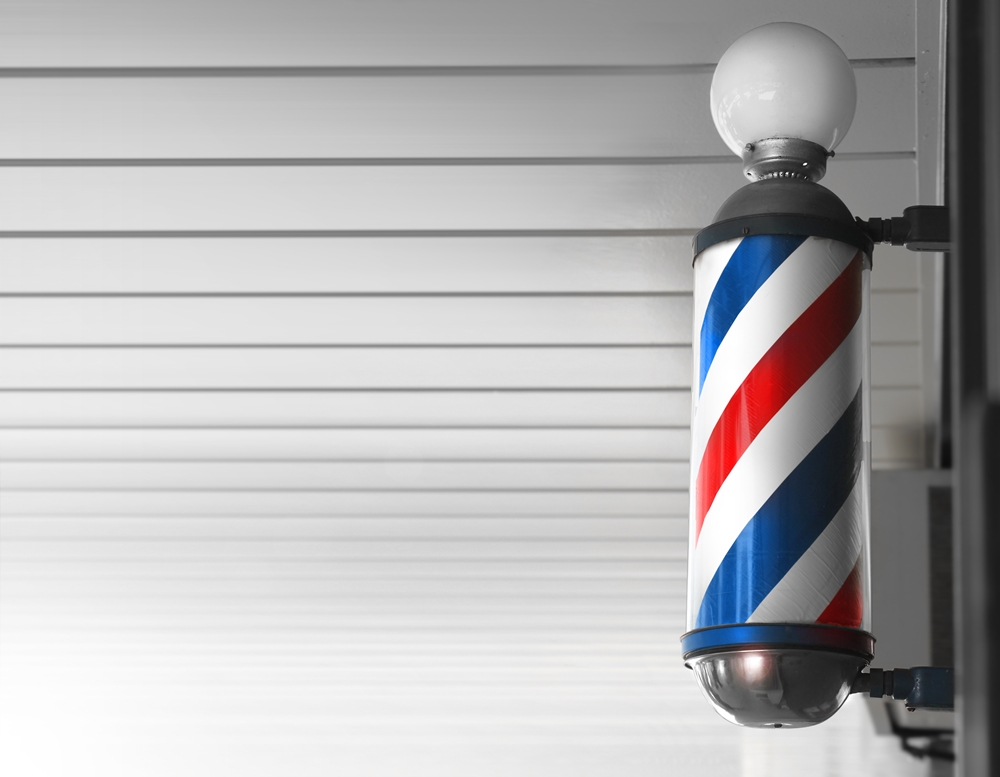
The unique approach in prioritizing the familiarity of Camden residents was key in encouraging 14 local barbers to participate, says Megan Lepore, director of development and sustainability for the Center For Family Services.
“I think a lot of it is really text-heavy and confusing, and doesn’t take into account different levels of understanding in community populations,” she says.
Markey’s student, Kennedy Tran, who helped with the messaging and created flyers, says he believes the project is especially important because of the lack of awareness of readily available information.
“People can be swayed easily by one or two social media posts, whether it is true or not,” says the rising senior biology and health sciences major. “If we can relay the correct information to people, I believe individuals can make well-informed decisions for the betterment of their communities and themselves.”
The Center For Family Services worked with Rutgers–Camden to finalize the campaign materials and then activated a team of community connectors to assist in getting barbers on board.
This unique approach in prioritizing the familiarity of Camden residents was key in encouraging 14 local barbers to participate, says Megan Lepore, director of development and sustainability for the Center For Family Services.
“It’s word of mouth and it starts with a low-risk conversation; we want them to think about it,” says Lepore. “We aren’t barging in with a fistful of papers. We don’t want to be too pushy; that just makes us an undue influence and gives them another reason not to participate.”
After the team of community connectors reached out via phone calls and follow-up visits, the participating barbers scheduled their vaccine appointments and transportation was provided for those who needed it. Community connectors then continued to maintain outreach, tracking progress as well as any issues or concerns expressed by the barbers.
Overall, says Lepore, the project has “experienced more wins than challenges.” She notes that one aspect they had to overcome was related to communication and transparency in the process of scheduling. The process of entering personal information to register and schedule appointments was identified as a barrier, and navigating the scheduling platform was especially problematic for those who were not patients of the specific health care provider.
“Once our team initiated the process to facilitate the scheduling, the barbers were more inclined to follow through,” says Lepore.
Another challenge was ensuring that individuals followed up with their second shot.
“Once we started to get traction, the process has been fairly successful,” she says, noting that the issue was more about matching the individual’s availability with the schedule for the second vaccine appointment.
Once barbers are fully vaccinated, they are having their photos taken, framed, and hung on the wall of their shops.
“This signifies to everyone who sees it that they did it and they are good,” says Lepore.
Moving forward, says Atkins, COVID-19 vaccine efforts need to continue to seek solutions with those who are closest to the problems. One issue with these efforts nationwide, he says, was trying to use celebrities and political leaders such as President Joe Biden and Oprah Winfrey, who people don’t know as much as those who live and work in their communities.
“We know that barbers are those trusted messengers who have close relationships with people in their communities,” says Atkins. “If you trust someone to touch your hair, chances are that you will trust the information that they share.”
